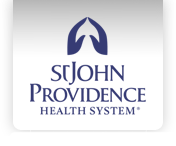TactiCath® Contact Force Ablation Catheter Study for Atrial Fibrillation Post Approval Study
| Status: | Active, not recruiting |
|---|---|
| Conditions: | Atrial Fibrillation |
| Therapuetic Areas: | Cardiology / Vascular Diseases |
| Healthy: | No |
| Age Range: | 18 - Any |
| Updated: | 3/30/2019 |
| Start Date: | January 21, 2015 |
| End Date: | February 2021 |
A prospective, multicenter, interventional study to collect confirmatory evidence on the
safety and effectiveness of the TactiCath® percutaneous ablation catheter in the post
approval setting for the treatment of symptomatic paroxysmal atrial fibrillation using
contact force assisted irrigated radiofrequency ablation.
safety and effectiveness of the TactiCath® percutaneous ablation catheter in the post
approval setting for the treatment of symptomatic paroxysmal atrial fibrillation using
contact force assisted irrigated radiofrequency ablation.
The TactiCath Quartz PAS is a prospective, non-randomized, multicenter, interventional study
to evaluate the continued safety and effectiveness of the TactiCath Quartz Set for the
treatment of symptomatic paroxysmal atrial fibrillation (PAF) using contact force assisted
irrigated RF ablation.
Patients undergoing elective catheter ablation for symptomatic PAF who are refractory or
intolerant to at least one antiarrhythmic drug (Class I-IV) will be screened for enrollment.
Patients who meet the study entry criteria and sign the patient informed consent form will be
enrolled and treated following the standard of care at each study site.
After the index procedure, subjects will be followed for a total of 60 months. During the
3-month blanking period following ablation, subjects may undergo up to 2 repeat ablation
procedures (up to 10 days prior to end of the blanking period) using the same device used
during ablation. Subjects will be evaluated at pre-discharge, at 7 days, at 3, 6 and 12
months post-index procedure and then yearly thereafter. Subjects will complete Holter
monitoring at 3- and 6- months post index ablation procedure and at yearly intervals
beginning at 12 months post-index ablation procedure.
to evaluate the continued safety and effectiveness of the TactiCath Quartz Set for the
treatment of symptomatic paroxysmal atrial fibrillation (PAF) using contact force assisted
irrigated RF ablation.
Patients undergoing elective catheter ablation for symptomatic PAF who are refractory or
intolerant to at least one antiarrhythmic drug (Class I-IV) will be screened for enrollment.
Patients who meet the study entry criteria and sign the patient informed consent form will be
enrolled and treated following the standard of care at each study site.
After the index procedure, subjects will be followed for a total of 60 months. During the
3-month blanking period following ablation, subjects may undergo up to 2 repeat ablation
procedures (up to 10 days prior to end of the blanking period) using the same device used
during ablation. Subjects will be evaluated at pre-discharge, at 7 days, at 3, 6 and 12
months post-index procedure and then yearly thereafter. Subjects will complete Holter
monitoring at 3- and 6- months post index ablation procedure and at yearly intervals
beginning at 12 months post-index ablation procedure.
Inclusion Criteria:
1. Patient is planned to undergo a catheter ablation procedure due to symptomatic PAF
that is refractory or intolerant to at least one Class I IV antiarrhythmic drug
2. Minimum of one episode of PAF greater than 30 seconds in duration within 12 months
prior to enrollment documented by 12 lead electrocardiogram (ECG), Holter monitor,
trans-telephonic event monitor, telemetry strip, or implanted device
3. Minimum of 3 episodes of PAF within the preceding 12 months documented by patient
history
4. Patient is 18 years of age or older
5. Patient is willing and capable of complying unassisted with the study protocol
requirements including all specified follow up visits
6. Patient provides written informed consent prior to enrollment in the study
Exclusion Criteria:
1. Persistent or long-standing persistent atrial fibrillation (AF)
2. Patient has had 4 or more cardioversions in the past 12 months.
3. Active systemic infection
4. Presence of implantable cardiac defibrillator (ICD)
5. Arrhythmia due to reversible causes including thyroid disorders, acute alcohol
intoxication, and other major surgical procedures in the preceding 3 months
6. Myocardial infarction (MI), acute coronary syndrome, percutaneous coronary
intervention (PCI), or valve or coronary bypass grafting surgery within preceding 3
months
7. Left atrial diameter > 5.0 cm
8. Left ventricular ejection fraction < 35%
9. New York Heart Association (NYHA) class III or IV
10. Previous left atrial ablation procedure, either surgical or catheter ablation
11. Patient has had a left atrial surgical procedure or incision with resulting scar
12. Previous tricuspid or mitral valve replacement or repair
13. Heart disease in which corrective surgery is anticipated within 6 months
14. Bleeding diathesis or suspected pro coagulant state
15. Contraindication to long term antithromboembolic therapy
16. Presence of any condition that precludes appropriate vascular access
17. Renal failure requiring dialysis
18. Known sensitivity to contrast media (if needed during the procedure) that cannot be
controlled with pre-medication
19. Contraindication to computed tomography and magnetic resonance angiography
20. Severe pulmonary disease (e.g., restrictive pulmonary disease, constrictive or chronic
obstructive pulmonary disease) or any other disease or malfunction of the lungs or
respiratory system that produces severe chronic symptoms
21. Positive pregnancy test results for female patients of childbearing potential
22. Patient has other anatomic or co morbid conditions that, in the investigator's
opinion, could limit the patient's ability to participate in the study or to comply
with follow up requirements, or impact the scientific soundness of the study results
23. Patient is currently participating in another clinical trial or has participated in a
clinical trial within 30 days prior to screening that may interfere with this study
24. Patient is unlikely to survive the protocol follow up period of 12 months
We found this trial at
20
sites
Providence Hospital St. John Providence Health System is comprised of five hospitals plus more than...
Click here to add this to my saved trials
Click here to add this to my saved trials
Brigham and Women's Hosp Boston’s Brigham and Women’s Hospital (BWH) is an international leader in...
Click here to add this to my saved trials
3400 Spruce St
Philadelphia, Pennsylvania 19104
Philadelphia, Pennsylvania 19104
(215) 662-4000

Hospital of the University of Pennsylvania The Hospital of the University of Pennsylvania (HUP) is...
Click here to add this to my saved trials
Emory University Hospital As the largest health care system in Georgia and the only health...
Click here to add this to my saved trials
Click here to add this to my saved trials
171 Ashley Avenue
Charleston, South Carolina 29425
Charleston, South Carolina 29425
843-792-1414

Medical University of South Carolina The Medical University of South Carolina (MUSC) has grown from...
Click here to add this to my saved trials
Click here to add this to my saved trials
Cleveland Clinic Foundation The Cleveland Clinic (formally known as The Cleveland Clinic Foundation) is a...
Click here to add this to my saved trials
Click here to add this to my saved trials
Click here to add this to my saved trials
Click here to add this to my saved trials
Click here to add this to my saved trials
Click here to add this to my saved trials
University of Louisville The University of Louisville is a state supported research university located in...
Click here to add this to my saved trials
Click here to add this to my saved trials
Click here to add this to my saved trials
Click here to add this to my saved trials
Click here to add this to my saved trials
Stony Brook University Medical Center Stony Brook Medicine expresses our shared mission of research, clinical...
Click here to add this to my saved trials






